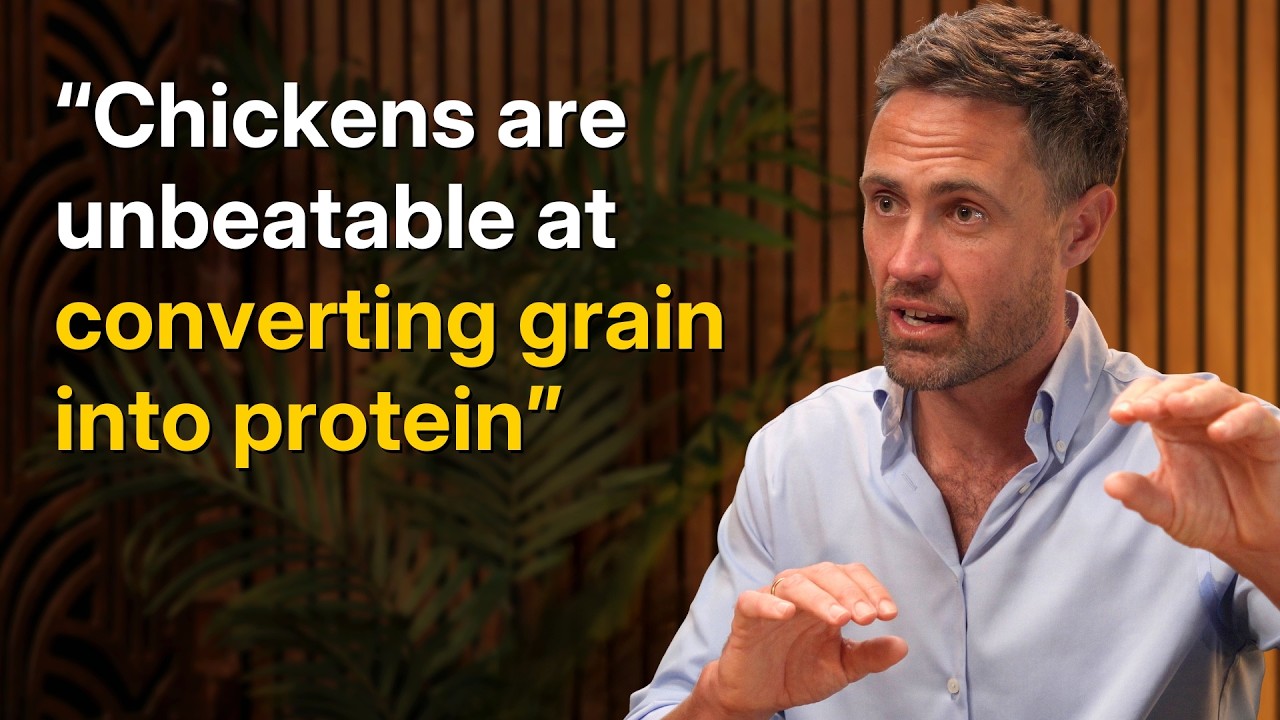Lewis Bollard highlights the significant challenges in ending factory farming due to its economic efficiency, cultural preferences, and political barriers, emphasizing the importance of incremental reforms like in-ovo sexing alongside technological innovations such as cultivated meat. He calls for increased political engagement, advocacy, and funding to overcome powerful industry interests and accelerate global animal welfare improvements, cautioning against conflating welfare solely with climate goals.
In this insightful conversation with Lewis Bollard, Farm Animal Welfare program director at Open Philanthropy, the challenges and complexities of improving animal welfare in factory farming are explored in depth. Lewis emphasizes that despite the anticipated arrival of advanced technologies like Artificial General Intelligence (AGI) and cultivated meat, the entrenched efficiency and cultural preferences for real meat make the end of factory farming far from inevitable. Factory farming remains incredibly efficient due to evolutionary optimization of animals like chickens, which convert grain to meat at a very low cost, making it difficult for alternatives to compete on price. Moreover, political and cultural barriers, including legal restrictions on cultivated meat in some regions, pose significant obstacles to transformative change.
Lewis highlights the importance of incremental reforms alongside technological innovation. For example, in-ovo sexing technology, which identifies and eliminates male chicks before hatching, has already spared hundreds of millions of chicks from being killed. Such humane technologies, though less glamorous than moonshot alternatives like lab-grown meat, can have immediate and large-scale impacts. However, the industry’s relentless focus on efficiency often leads to increased animal suffering, as seen in practices like breeding chickens to grow so rapidly that they collapse under their own weight, or confining pigs in gestation crates. Lewis stresses the need for government and corporate policies to set welfare standards to prevent a race to the bottom driven by cost-cutting.
The conversation also addresses the political economy surrounding animal welfare reforms. Despite widespread public support for better animal welfare, powerful agricultural lobbies and entrenched interests dominate legislative processes, often blocking meaningful reforms. Lewis explains how contract farmers, who are often economically trapped by large agribusiness corporations, are less represented in lobbying efforts, which are dominated by industrial players. He advocates for mobilizing advocates, family farmers, and donors to engage politically by supporting candidates and policies that prioritize animal welfare, counterbalancing the meat industry’s influence.
Lewis discusses the global dimension of animal welfare, noting that as countries grow wealthier, meat consumption typically increases, worsening animal suffering. However, he points to examples like Germany where wealth combined with strong advocacy has led to reforms that reduce suffering. He also highlights the potential for spreading humane practices and alternative proteins in rapidly developing countries like China, where cultivated meat research is advancing. Yet, he cautions that without active advocacy and policy interventions, economic incentives alone will not suffice to improve animal welfare globally.
Finally, Lewis critiques the common conflation of animal welfare with sustainability and climate change in advocacy messaging. While alternative proteins can address both issues, he warns that prioritizing climate concerns often sidelines the urgent moral imperative to reduce animal suffering. He notes that consumers generally care deeply about animal welfare, and corporate responsiveness to consumer demand has driven significant progress in corporate pledges to improve welfare standards. Lewis calls for increased philanthropic funding and political engagement to accelerate reforms, emphasizing that the animal welfare space remains vastly underfunded relative to its scale and impact, offering a unique opportunity for donors and advocates to make a profound difference.
